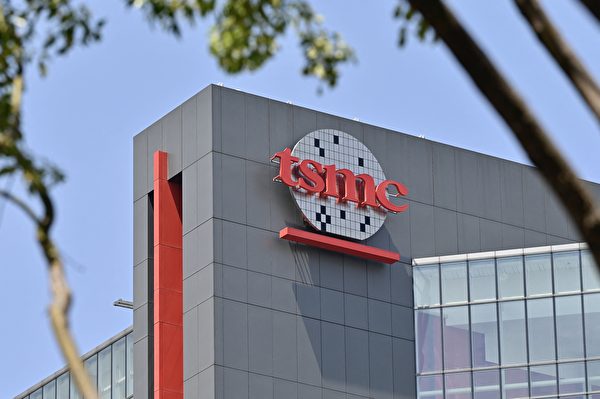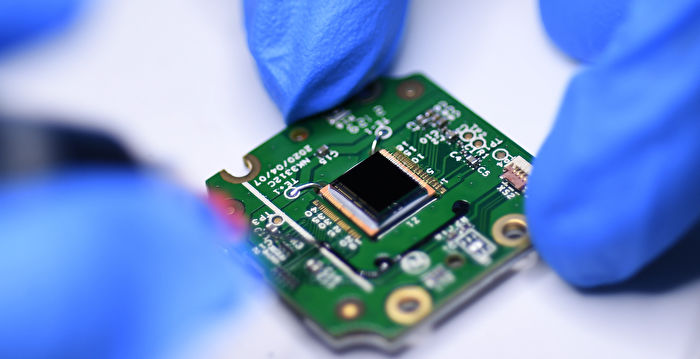[Epoch Times, August 21, 2022](Epoch Times reporter Xia Yu comprehensive report) The United States not long ago passed the $280 billion “CHIPS and Science Act” (CHIPS and Science Act), which is aimed at curbing Chinese technology. The influence of the bill, the CCP jumps on it. But the analysis said that although Beijing was unhappy, it was unable to respond effectively. And chip makers such as TSMC and Samsung must choose to side with the United States.
“I don’t think China (the CCP) has any good direct policy options (in response to the U.S.) right now,” Lu Xiaomeng, director of the geotechnology practice department at the Eurasia Group, a think tank, said last week at the Aspen, Colorado, forum.
“China (CCP) basically doesn’t have the technology to create those (chip) fabs,” Lu Xiaomeng said.
The CCP jumps but cannot retaliate
The Chip and Science Act, signed into law by President Biden on Aug. 10, contains $52 billion in support for the semiconductor industry. But getting the money comes at a price: The bill’s guardrail provisions explicitly prohibit companies that receive the money from expanding production of advanced chips in China.
Representatives of China’s foreign ministry have criticized the U.S. legislation as “economic coercion” at multiple media briefings. Yu Xiekang, vice-chairman of the China Semiconductor Industry Association, said the US Chip Act was designed to help China’s competitors, and parts of it also clearly discriminated against Asian countries, but he did not elaborate.
Despite the harsh wording, Beijing has yet to announce any retaliation for the Chip Act.
Samm Sacks, a researcher on cybersecurity policy and China’s digital economy at Washington-based think tank New America, noted that Beijing threatened to list TSMC and others after the United States blocked global chipmakers from supplying Chinese telecom giant Huawei in 2020. on its “Unreliable Entity List”.
Sachs told an Aspen Forum panel meeting that deploying such policy tools “would have a huge cost to the foreign business community in China, which it (the CCP) did not do”.
“I’m noticing this because I think it shows that (China’s) economic pressures are still there, and now (the economy) is only going to intensify around the (CCP) ‘zeroing’ policy,” she said.
Chipmakers face U.S. pressure
Because of the CCP’s military-civilian integration policy and the use of high technology to persecute Chinese human rights, the United States has begun to curb the CCP’s access to high-end technology. In December, South Korean semiconductor company Magnachip had to announce the termination of a planned $1.4 billion merger with Chinese private equity firm Wise Road Capital after the Committee on Foreign Investment in the United States (CFIUS) intervened. Because CFIUS believes the deal poses a risk to U.S. national security.
Chris Miller, an assistant professor at Tufts University and author of “The Chip Wars: The Battle for the World‘s Most Critical Technology“, told the Financial Times: “This is a very important event for the industry as a whole. Signal.”

Now, with the Chip Act becoming law, top chip makers like TSMC also have to choose sides between the U.S. and China because the most critical chip-making equipment to keep fabs running is designed and supplied by the U.S. and its allies .
Tech companies including TSMC and U.S. chipmakers Intel and Micron are also under pressure to boost U.S. domestic production while making it harder for Beijing to access advanced semiconductor technology.
In addition, the pressure is likely to increase as the United States unites with allies such as South Korea, Taiwan and Japan to create a “Chip 4” alliance aimed at coordinating R&D, subsidies and supply chain policies.
The Financial Times previously reported that South Korean semiconductor giants Samsung Electronics and SK Hynix are re-evaluating their investments in China in response to the guardrail provisions in the Chip Act; while increasing investment in U.S. production facilities.
Chipmakers relying on key U.S. technology must side with the U.S.
These chip-making companies rely entirely on a handful of U.S., Japanese and European chip designers and equipment makers for the technology needed to produce advanced chips, which Miller sees as “a major bottleneck in the semiconductor production process.”
These companies with technology include Cadence, a US chip design software maker, and Synopsis, the world‘s number one provider of electronic design automation (EDA) solutions, Mentor Graphics, a division of Siemens, and US equipment manufacturing. Applied Materials and Lam Research, a US semiconductor equipment company, and ASML in the Netherlands, which manufactures the EUV lithography tools needed to produce cutting-edge Dram memory chips.

“China has the market, but the US has the technology,” Yeo Han-koo, who was South Korea’s trade minister until May this year, told the Financial Times. “Without technology, there is no product. Without the market, at least you can find a way to Diversify and identify alternatives.”
“TSMC and Samsung’s hands are tied. They have to choose the U.S. side.” Lu Xiaomeng told Nikkei Asia at the Aspen Forum, “There may be some very little room for companies to bypass the chip bill. Chinese investment restrictions, but they can’t do more.”
Lawyer: It would not be surprising if the U.S. government is more hawkish in the future
Dylan Patel, chief analyst at SemiAnalysis, told the Financial Times that U.S. guardrails on upgrading or expanding companies’ operations in China will have an impact on chipmakers investing in China.
Patel said SK Hynix and Samsung will likely just maintain existing investments. “As a result, their share of production in China could drop significantly over time,” he said.
David Hanke, a partner at Washington law firm ArentFox Schiff, told the Financial Times that firms should also consider the possibility of a more hawkish approach by the US government in the near future. Republicans are expected to retake the House and even the Senate in the November midterm elections.
“There’s nothing China can do to circumvent U.S. regulations. So it wouldn’t be surprising if people in Congress start saying in a year or two that the current guardrails are too weak,” Hanke said.
Responsible editor: Li Huanyu
